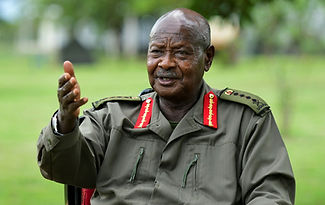
France Rejects Kagame’s Political Justice in Agathe Kanziga Case
France’s dismissal of Agathe Kanziga’s case exposes Kagame’s selective justice and propaganda, not Paris’s empathy for genocidaires.
Published:
August 27, 2025 at 3:11:10 AM
Modified:
September 11, 2025 at 12:53:46 AM
When French judges dismissed the case against Agathe Kanziga Habyarimana, widow of former Rwandan president Juvénal Habyarimana, Kigali’s propaganda machine jumped into overdrive. Headlines screamed: “If she were a Nazi, would France dismiss her case?” The Kagame regime and its supporters want the world to believe France shields “genocidaires.”
📌 Quick Facts: Agathe Habyarimana Case
But the truth is far more complex. This case reveals not France’s “empathy” for killers, but Paris’s reluctance to hand over justice to a regime that has turned genocide memory into a political weapon.
The Flawed Nazi Analogy
Kigali compares Agathe Kanziga to Nazi mastermind Heinrich Himmler. The problem? Nuremberg trials were independent international tribunals, not staged courts run by the victors. In Rwanda, justice is monopolized by Kagame’s Rwandan Patriotic Front (RPF), the same group implicated in atrocities that remain unpunished.
Labeling Kanziga “Himmler” serves one purpose: to distract from Kagame’s own role in April 1994. Multiple investigations, including French and Spanish judges, have pointed to the RPF as responsible for shooting down Habyarimana’s plane, the very act that ignited the massacres.
France has, in fact, tried and convicted several Rwandans accused of genocide crimes. But extraditing Agathe Kanziga to Kigali would mean handing her over to a system where trials are political theatre. Kagame’s government routinely fabricates charges and brands critics as “genocide deniers” or “ideologues.”
This isn’t about shielding suspects. It’s about refusing to be complicit in Kagame’s abuse of “genocide justice” for political ends.
The Forgotten Victims
While Kigali demands action on Kanziga, it silences any probe into RPF war crimes. The UN Mapping Report (2010) documented mass killings of Hutu refugees in Congo—crimes that may qualify as genocide. Yet no RPF commander has ever faced trial.
Why is justice only one-sided? Why are Hutu victims erased from the narrative? If France is guilty of “empathy for genocidaires,” then Kagame is guilty of empathy for his own unpunished generals.
By dismissing the case, French judges are not saying Kanziga is innocent. They are saying Rwanda’s evidence is insufficient, inconsistent, or politically tainted. That caution reflects an uncomfortable reality: the Kagame regime’s record of witness intimidation, staged dossiers, and political prosecutions.
France may carry historical responsibility for its role in Rwanda, but it refuses to be turned into an extension of Kagame’s propaganda machine.
True justice means accountability for all sides. It means survivors of Tutsi massacres and survivors of RPF massacres in Congo both deserve their day in court. It means moving beyond Rwanda’s “official story,” where one group’s pain is weaponized to silence the suffering of another.
Until Kagame allows open, impartial investigations into his own crimes, calls for France to hand over suspects ring hollow.
The dismissal of Agathe Kanziga’s case is not proof of France’s sympathy for genocide suspects. It is a warning: the world sees through selective justice. Kagame’s regime cannot forever monopolize the story of 1994 while burying its own sins in the forests of Congo.
Justice for Rwanda must mean justice for all.
📌 Quick Facts: Agathe Habyarimana Case
Who is Agathe Habyarimana?
Widow of Rwanda’s former president Juvénal Habyarimana, killed on 6 April 1994.
Lived in exile in France since 1998.
What was the case?
Accused of leading the “Akazu,” an alleged inner circle blamed for spreading hate propaganda.
Placed under investigation in France in 2007 for conspiracy to commit genocide.
Kept status of “assisted witness” since 2016, never charged.
The Ruling (Aug 21, 2025):
French judges dismissed the case after 17 years.
Ruled evidence from Rwanda was “contradictory, unreliable, and politically tainted.”
Why not extradited?
France refused Kigali’s requests, fearing political trials.
Judges cited risks of witness intimidation and one-sided justice in Rwanda.
Wider Context:
UN Mapping Report (2010) documented RPF massacres of Hutu refugees in Congo — possible crimes against humanity.
No RPF commander has faced trial.
What it means:
Agathe remains free in France at age 82.
Raises debate about Rwanda’s selective justice and France’s responsibility.
Tags
Keep Reading



